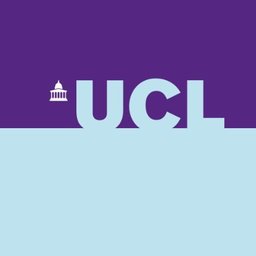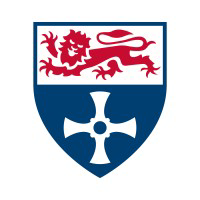About us
The UCL Cancer Institute is the hub for cancer research at University College London, one of the World’s leading universities. The Institute draws together over 400 talented scientists who are working together to translate research discoveries into developing kinder, more effective therapies for cancer patients. In particular, it fosters links between basic cancer researchers across Biomedicine and with the clinical activities of our four partner hospital trusts, known as UCL Partners (University College London Hospital NHS Foundation Trust, Great Ormond Street Hospital for Children NHS Trust, the Royal Free Hampstead NHS Trust, and Moorfields Eye Hospital NHS Foundation Trust), as well as the London School of Pharmacy and Cancer Research UK. The Institute has greater clinical links than any comparable centre in the UK, creating a unique opportunity for significant impact on the delivery of clinical service to cancer patients.
The UCL Cancer Institute is part of the CRUK City of London Centre, which draws together the expertise present in four leading centres for cancer research, UCL, Barts, KCL and the Francis Crick Institute. Further Information about the UCL Cancer Institute can be found on our website https://www.ucl.ac.uk/cancer/.
About the role
We are seeking a talented and enthusiastic Post-doctoral Research Fellow. This is a post within the Cell Signalling group in the Department of Oncology at the UCL Cancer Institute. The work of the Cell Signalling Group is focused on the PI3K/PTEN signalling axis and its involvement in the development and maintenance of cancer.
This is a new position in the UCL Cancer Institute to work on a research programme focused on the study of PI3K isoforms in Cell Signalling research group of Prof Bart Vanhaesebroeck. The research will focus on the structural and signalling impact mutations in PI3Kα and PI3Kδ.
Applications should include a CV and a Cover Letter: In the Cover Letter please evidence the essential and desirable criteria in the Person Specification part of the Job Description. (By including a Cover Letter, you can leave blank the 'Why you have applied for this role' field in the application form, which is limited in the number of characters it will allow.)
Appointment at Grade 7 is dependent upon having been awarded a PhD; if this is not the case, initial appointment will be at research assistant Grade 6B with payment at Grade 7 being backdated to the date of final submission of the PhD thesis.
The Grade 7 post is funded for 6 months in the first instance, with a start date on the 15th of August 2025.
Interviews to be held on the 2nd of July 2025.
About you
Successful candidates must have a PhD (or close to completion) with laboratory experience in cell signalling in vascular biology, wound healing and mouse studies, as well as excellent knowledge of phosphoinositide/PI3K signalling, related to the fields of angiogenesis and wound healing.
Commitment to fostering a positive work/teaching/learning environment and ability to work collaboratively within a team are essential as it is the ability to analyse graphical and statistical data.
What we offer
As well as the exciting opportunities this role presents we also offer some great benefits some of which are below:
- 41 Days holiday (including 27 days annual leave 8 bank holiday and 6 closure days)
- Defined benefit career average revalued earnings pension scheme (CARE)
- Cycle to work scheme and season ticket loan
- On-Site nursery
- On-site gym Enhanced maternity, paternity and adoption pay
- Employee assistance programme
- Staff Support Service Discounted medical insurance
For rewards and benefits at UCL please visit:
Our commitment to Equality, Diversity and Inclusion
As London’s Global University, we know diversity fosters creativity and innovation, and we want our community to represent the diversity of the world’s talent. We are committed to equality of opportunity, to being fair and inclusive, and to being a place where we all belong. We therefore particularly encourage applications from candidates who are likely to be underrepresented in UCL’s workforce. These include people from Black, Asian and ethnic minority backgrounds; disabled people; LGBTQI+ people; and for our Grade 9 and 10 roles, women.
You can read more about our commitment to Equality, Diversity and Inclusion here https://www.ucl.ac.uk/equality-diversity-inclusion/

